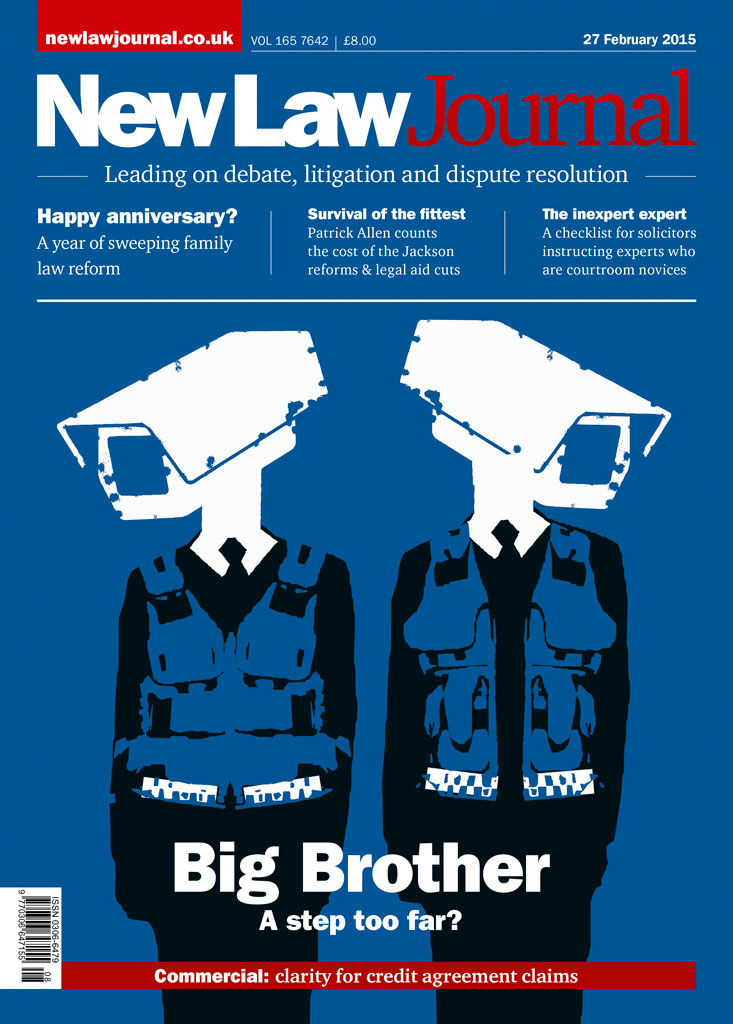
Geoffrey Bindman QC follows John Thelwall’s fight for justice
Dr Chris Pamplin continues his exploration of the new guidance for experts
Richard Harrison provides a checklist for the witness who is an expert but not a courtroom regular
Investment Trust Companies (in Liquidation) v Revenue and Customs Commissioners[2015] EWCA Civ 82, [2015] All ER (D) 181 (Feb)
R (on the application of Eliterank Ltd) v Royal Borough of Kensington and Chelsea [2015] EWHC 220 (Admin), [2015] All ER (D) 168 (Feb)
Vringo Infrastructure Inc v ZTE (UK) Ltd [2015] EWHC 214 (Pat), [2015] All ER (D) 187 (Feb)
Plantation Holdings (FZ) Llc v Dubai Islamic Bank PJSC [2015] EWHC 272 (Comm), [2015] All ER (D) 179 (Feb)
McCabe v Moore and others[2015] EWHC 260 (QB), [2015] All ER (D) 169 (Feb)
Sumner v Royal Surrey County Hospital NHS Trust and another [2015] EWHC 293 (QB), [2015] All ER (D) 173 (Feb)
Fetim BV v Ofice for Harmonisation in the Internal Market T-395/12, [2015] All ER (D) 188 (Feb)
MOVERS & SHAKERS

NLJ Career Profile: Ken Fowlie, Stowe Family Law
Ken Fowlie, chairman of Stowe Family Law, reflects on more than 30 years in legal services after ‘falling into law’

Gardner Leader—Michelle Morgan & Catherine Morris
Regional law firm expands employment team with partner and senior associate hires

Freeths—Carly Harwood & Tom Newton
Nottinghamtrusts, estates and tax team welcomes two senior associates







